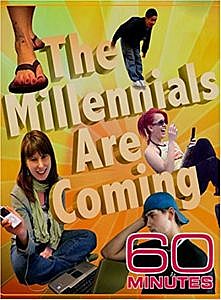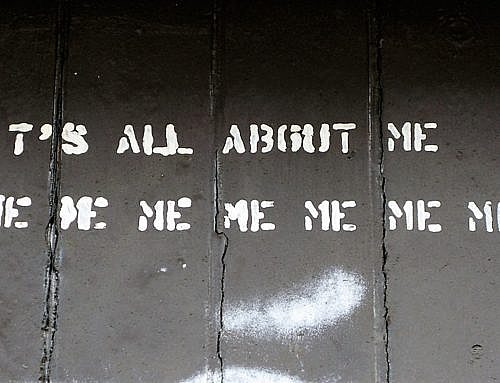There are times in life when the journey takes an unexpected detour, where you intended to arrive at one destination, but suddenly find yourself unexpectedly at another. Those can be a bit of a head scratcher. Welcome to my life! Instead of just being frustrated, I have learned that sometimes, such detours are better embraced than resisted. Let me explain…
My whole encouragement towards expanding our spiritual perspectives and paradigms has historically been targeted at my own generation of post War II Boomers. That journey began 40 years ago and I have been mining in that gold vein ever since. I have walked side by side with my contemporaries as they have struggled to find a healthy balance between family, career and their spiritual journey. One of the unexpected outcomes of having visited a number of longtime friends and staying in their homes has been to discover the intense interest their millennial children have in exploring these same perspectives. I could have easily misjudged this at first, but lying beneath the surface of their protective “I’m so not interested” body language is a deep, abiding hunger for fresh perspectives. In the course of our dialogue about these deeply personal topics, it was shocking to see their otherwise disenfranchised children suddenly become actively engaged in the discussion. Disinterested boredom turned into an insatiable hunger, given the chance to explore a fresh, new paradigm.
So what is behind this millennial hunger? Among the many observations we could make, one thing is painfully clear: there is a significant crisis within the Christian community. “Houston, we have a problem!” What makes this so difficult to discuss is that it directly implicates our Boomer generation and there is a lot of shame associated with it. Nobody likes it when the doctor starts to probe and then shines his light right into your eyes. Basic self-evaluation and critique is hard enough. With most of us already all too painfully aware of our shortcomings and failures, we’re conflicted before we even start. Our religious sub-culture’s raised the standard and expectation of perfect parenting, but few if any of us measure up. For a great many, especially men, our less than stellar results invite us to compartmentalize it all, put a lock on the door and focus on something we can do. Perhaps it’s time to rethink the paradigm. Who created these expectations? Who’s doing the evaluation? Is the criteria by which we are supposed to judge and be judged even accurate?
This all started years ago, perhaps with the best of intentions, when our religious leaders and communities responded to the call presented in Dr. James Dobson books and Bill Gothard seminars. An entire generation of new “Christian” parents were put under enormous pressure to be flawless parents, expected to produce textbook families. We were taught how to program our children to be good Christians and obey. We were told to protect them from the big bad world out there which was intent on devouring them. Learn the correct principles, do what’s right, faithfully apply them, and you will get the fruit and reward for your obedience. The mindset adopted by our Christian communities was that the best of the best of our children were to be considered “holy”, set apart to serve God in some kind of ministry capacity. That became the new definition of success. If you were Catholic, the family badge of honor was to have a son who became a priest. Onward Christian Soldiers! Right?
 The fruit? In 2007, the news show 60 Minutes did a segment entitled, “The Millennials Are Coming”. Sociologists described them as the most “overprotected and coddled generation” in human history. Not exactly the outcome we were expecting or hoping for. With principles to master, formulaic promises, and a child “in the ministry” as the goal, is it any wonder that most parents feel like they have demonstrably failed, which has led to a great deal of confusion and disillusionment on both sides of the equation. We have not arrived at our intended destination; not only do our kids refuse to go to church, many of them despise it, even viewing it as harmful! What was supposed to be considered “Holy” has become something “Hated.” The one saving grace is that many of them have not lost their belief in God. They are not having a crisis of faith but a crisis of church. They have overwhelmingly rejected our church-centric paradigm but now find themselves lost in a hallway of life unsure which door to open in order to move forward. Many of us are actually in the same space but too afraid to admit it. We have too much invested in the former paradigm and therefore too much to lose, frightened of and resistant to change. Nevertheless – “Houston, we have a problem!”
The fruit? In 2007, the news show 60 Minutes did a segment entitled, “The Millennials Are Coming”. Sociologists described them as the most “overprotected and coddled generation” in human history. Not exactly the outcome we were expecting or hoping for. With principles to master, formulaic promises, and a child “in the ministry” as the goal, is it any wonder that most parents feel like they have demonstrably failed, which has led to a great deal of confusion and disillusionment on both sides of the equation. We have not arrived at our intended destination; not only do our kids refuse to go to church, many of them despise it, even viewing it as harmful! What was supposed to be considered “Holy” has become something “Hated.” The one saving grace is that many of them have not lost their belief in God. They are not having a crisis of faith but a crisis of church. They have overwhelmingly rejected our church-centric paradigm but now find themselves lost in a hallway of life unsure which door to open in order to move forward. Many of us are actually in the same space but too afraid to admit it. We have too much invested in the former paradigm and therefore too much to lose, frightened of and resistant to change. Nevertheless – “Houston, we have a problem!”
THESE ARE EYE OPENING!
According to researcher George Barna, attendance at church and favorable impressions of church are at an all-time low. The institutional church is hemorrhaging participants. A great many former church attenders are feeling quite disillusioned. Some are quite vocal in their anger while others have just quietly slipped away not interested in getting caught in the verbal fray. There are two primary groups within our community, both feeling disillusioned and disenfranchised: 1) our children—the millennials and 2) us—the 50 and over “boomers.”
The first group, our children, have some of the most dramatic statistics related to our study. According to Barna’s research [i]:
- Only 2 in 10 Americans under 30 believe attending a church is important or worthwhile (an all-time low).
- 59 percent of millennials raised in a church have dropped out.
- 35 percent of millennials have an anti-church stance, believing the church does more harm than good.
- Millennials are the least likely age group of anyone to attend church (by far).
Rather eye opening figures! This was not the way the story was supposed to go, at least not according to the books we read and the religious leaders we listened to. The one-size-fits-all formulas for success did not produce the results we expected. In my world of coaching and consulting, the most common scenario within families around the subject of church is one of family détente. Talking about it is like trying to navigate an emotional minefield. Men are told over and over by their wives, “I just wants us all to get along. Can we have a peaceful family dinner?” The clear message: “Don’t go there!” So for many of us the dinner event is like our first awkward Junior High dance; we boys all stay on our side of the gym while the girls stayed on theirs. Dancing together is wishful thinking or a terrifying prospect. Either way it doesn’t happen. Our kids equate spirituality with church, so we can’t talk about it, or if we do, they hate it.
At the moment, the art of listening is being overwhelmed by the need to be heard. Wherever this is in play, relationships become causalities. I think we need to ask, and hear… What are our millennial children trying to communicate to us?
You are not listening to us!
Since they were children we have force-fed them a single church-centric paradigm. They have been told where to look, what to see and how to interpret it. If they present a different perspective, we don’t ask them questions, which would indicate a desire for understanding, but rather we argue the rightness of our positions. After all, in the religious community being right is what matters. While they may not be able to articulate how they feel in the manner we might prefer, we need to be more discerning and listen to what is behind and between what they are trying to communicate. Above all else, this much is clear, before we can get anywhere, they are first asking the question, “Can you hear me?”
We are disillusioned
Sadly, the paradigm of the Christian life given to many of the kids raised in Church looks a lot more like a religious version of Disneyland, than the reality they have experienced. They have crashed hard into the fact that life is both hard, complicated and certainly not fair. In many ways they don’t feel prepared to face it. And in many cases, this “boomerang” generation has returned home. According to the Pew Research Center, [ii] For the first time in more than 130 years, Americans ages 18-34 are more likely to live with their parents than in any other living situation. Another key observation to make is one of the most pressing things they are trying to sort out: “Where is God in all this?”
We see the institutional religious world as inflexible and irrelevant
What they have observed of the institutional religious world is that it is often defensive in nature, lagging in innovation and having very little impact on the whole of society. The media has convinced them they are living in a Post-Christian culture. They were raised to be world changers and yet have observed the vehicle from which they are supposed to do this profoundly ill equipped and losing its influence. They are looking for a sense of purpose and meaningful impact but don’t see institutional religion as a means of effective change. Instead of perceiving them as rebellious, and hearing them through our own lens of rejection, perhaps it would be more helpful to hear them as wondering: “Are there more suitable models?”
Seems like you (Boomers) have lost the simplicity of the mission:
The context for Jesus telling the story of The Good Samaritan was a question: “What is the greatest commandment?” In other words, give us your executive summary statement. Jesus responded with this;
“‘Love the Lord your God with all your heart and with all your soul and with all your mind and with all your strength.’ The second is this: ‘Love your neighbour as yourself.’ There is no commandment greater than these.” (Mark 12:30-31)
While they’ve been raised in an “it’s all about me” culture, they are conflicted. They display self-centered attitudes while at the same time being very conscious of the plight of the downtrodden. They wonder: “Do we care?” or “Are we more preoccupied with being theologically right and eschatologically accurate?” While we struggle to answer that, they have actually moved on in search of evidence to answer: “Where do the teachings of Jesus and God’s principles actually change society?”
We are tired of your blame shifting
While this may be hard to hear, it is their perception we spend far too much time complaining about what others are doing wrong and how we are victims, than they see us doing anything about it. They observe our disillusionment, wondering why we cannot be honest about it. They are asking the self-reflective question: “Do you have any solutions to the problems you have created?”
BOOMER SOONERS ARE NOW LATERS
The second significant group to stop attending church are those of us over 50 years of age who Dr. Josh Packard in his book “Church Refugees” calls “The Dones”. They haven’t left God; but they are exiting the institutional church world in droves looking for something less pretentious, more relational and more relevant to our daily lives. The Sunday morning experience for many has been like visiting another planet for a few hours each week. What was once a worship service has now become a show and many are tired of it. With a hint of what might be a prophetic parallel, it’s startling to learn that Ringling Bros. and Barnum & Bailey will be closing “The Greatest Show on Earth” after a 146 years run. One wonders if many churches aren’t headed in the same direction?
While the millennials certainly have their issues, what are “the Dones” saying?
We want non-institutional community
We want to hang out together in relaxed settings with our friends and just talk! We are done with “the show”, church politics and being told our significance and value lie in our contributions to our church. Please don’t give me another formula to acquire God’s blessing. Bring on the wine and cheese, meaningful dialogue with good friends! The question we are asking: “Is there life after church?
We want authentic relationships
Religious pretense, the pressure to appear “spiritual” and the general lack of transparency within the church world has exhausted most of us. We are tired of facades and pretending. Most of us are dog-paddling to just keep our head above water and want to find a safe place with genuine friendships to “let our hair down”. We’re wondering where this fits within our spiritual pursuit: “Can we just be real people?”
We want to be a genuine expression of our faith
Most of us feel like we are living in a “Lost in Translation” movie, where the primary segments of our lives (family, work, and spirituality) are three very disconnected worlds. The resulting chaos would suggest we may have multiple personality disorder, which in turn leads to a host of unhealthy behaviors such as hypocrisy, duplicity and deception. We want off the religious treadmill and are asking: “How can I pull it together and be more genuine?
SEEING SOME CONSENSUS AND SYNTHESIS
What becomes clear the more you look at these two generations is there is a great deal of crossover. If we took a break from the argument, step back a little, one quickly recognizes that in many respects we are saying the same things but from different perspectives. Given our children have been raised in an IT/tech-driven world, relate to each other that way, and are often more comfortable communicating through a screen than they are in person, it may surprise you that they actually desire relationships with older mentors. They are just as starved for real relationship as we are, but perhaps for different reasons. There is a huge opportunity here. They are struggling relationally and confused about the unexpected world they have come face to face with. They cannot master it like they can a video game. They are silently screaming, “Stop the preaching!” and perhaps are looking for the same thing we are: “Let the relating begin.” Together we might ask ourselves: “Where are the true fathers?”
IN CONCLUSION
I recently had a consulting session with a socially-conscious millennial who wanted to make a difference but was torn between pursuing ministry or a business career. So, I asked, “Would you rather spend your life begging for other people’s money to make a difference or have your own to spend in any way you see fit?” He answered, “My own”. I then said, “Son, you’ve chosen the long road, but the one which in the end will give you the most freedom. Go build yourself a money making business like the original students of Jesus and you will be beholden to no one”. There is a reason entrepreneurs, like Bill Gates, Richard Branson, Cher Wang and Sara Blakely, are changing the lives of billions of people around the world. They impact the personal lives of far more people than any individual ministry person I am aware of.
It is my view, it’s time to present the millennials with a different paradigm which is not so church-centric and far more culture-centric — one like Jesus had, where He was about His father’s business practically feeding, healing and helping people cope with a broken world on a daily basis. It’s time we introduce them to the God of the Universe who has primarily changed the world through men and women from outside the ranks of church ministry. While the church is certainly an important aspect of the many things God is up to, it is seldom the vehicle He uses to bring practical transformation to societies. It is ironic to me that the Bible testifies to this reality but it is seldom recognized or presented in this fashion. It’s time for a change. It’s time to recognize God’s “Josephs” and envision a new generation to step into those shoes. While some like to focus their attention on Acts ch. 2 and the sensational birth of the church, in ch.’s 4 & 6 we already see practical problems emerging that need solving. People need to be feed, orphans and widows need to be taken care of. The only people who had means to do that were those who had created wealth to share from their businesses or jobs. The church ministry world doesn’t create wealth — it takes it. So again, I ask you, “Who are the true heroes of faith?”
[i] http://www.barna.com/research/americans-divided-on-the-importance-of-church/#.V-hxhLVy6FD
[ii] http://www.npr.org/sections/thetwo-way/2016/05/24/479327382/for-first-time-in-130-years-more-young-adults-live-with-parents-than-partners







Bob, thanks for this, I guess my only comment is that the Church ( Gods original body for reaching the lost and those in need) has failed in its real mandate, and so, as a result, the “real church” ( the believers) needs to take the lead, and whilst endeavoring to correct the past mistakes, also ensure that we do the job to which the real church was originally are called. That is a culturally different model from the 1st century church, with the same objective as the 1st century church. .
I concur Phil. I will address this more in a future blog…it seems to me the Boomers made church “all about us”. It has became the “end” vs. the “means”. In our quest for happiness and self-fulfillment many have ended up with a profound sense of emptiness and in search of a more meaningful life. Due to the way the Millennials are wired, they have seen right through the lack of authenticity in some segments of the institutional religious world and are in search of genuineness no matter where that takes them. It seems to me that both Jesus and the early Christian community were focused on others. Christianity was a way of life which was built on two simple principles; Love God & Love your neighbor.
Bob, I once heard that the best thing you can do to help the poor is to not be one of them. While all rich people don’t choose to help the poor, they are all in a position where they could if they desired to
It has been my observation with my clients that what drove many of them to become successful in the end became surprisingly unfulfilling. Sometimes it is later in life, other times after a major success they discover the same thing King Solomon did, human achievement doesn’t create a lasting sense of fulfillment. We were created to care about others and in the end only that gives one the sense of meaningful existence.